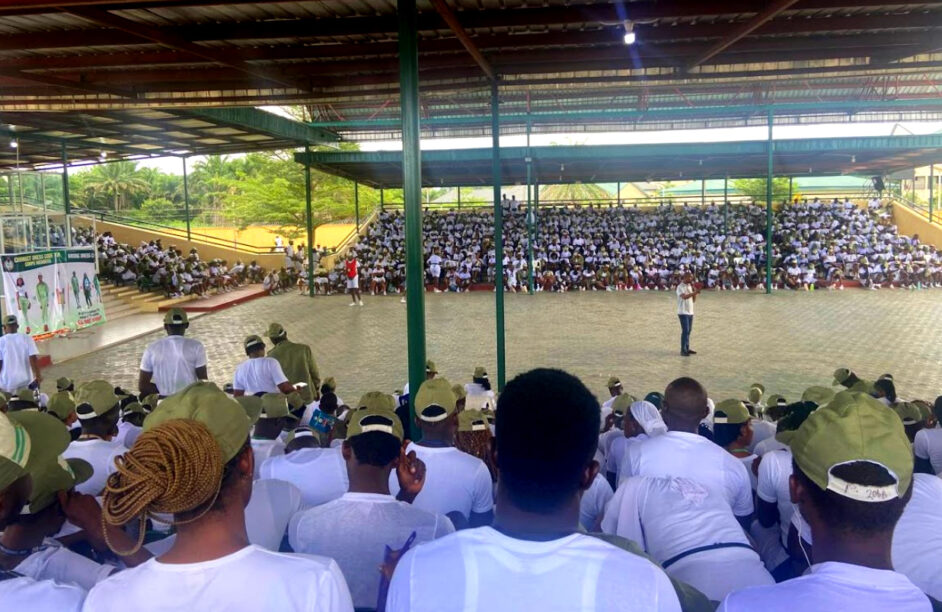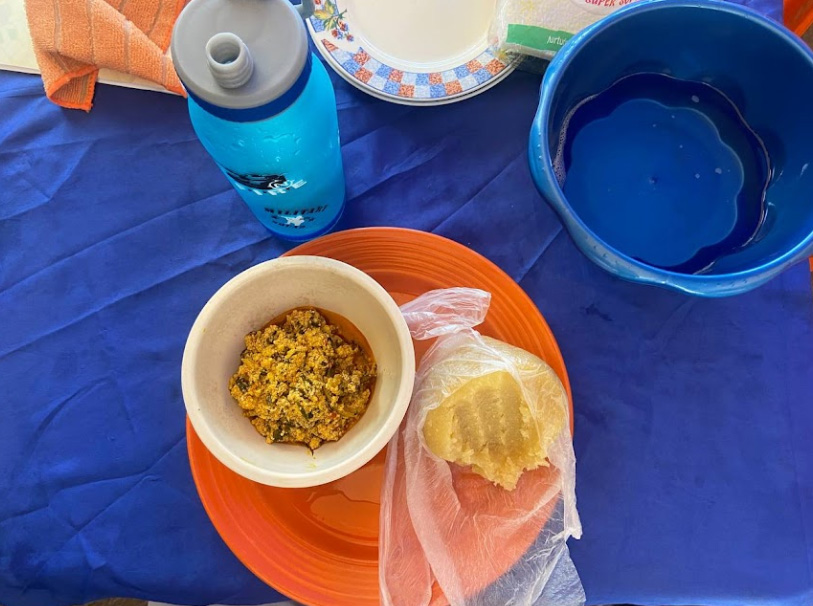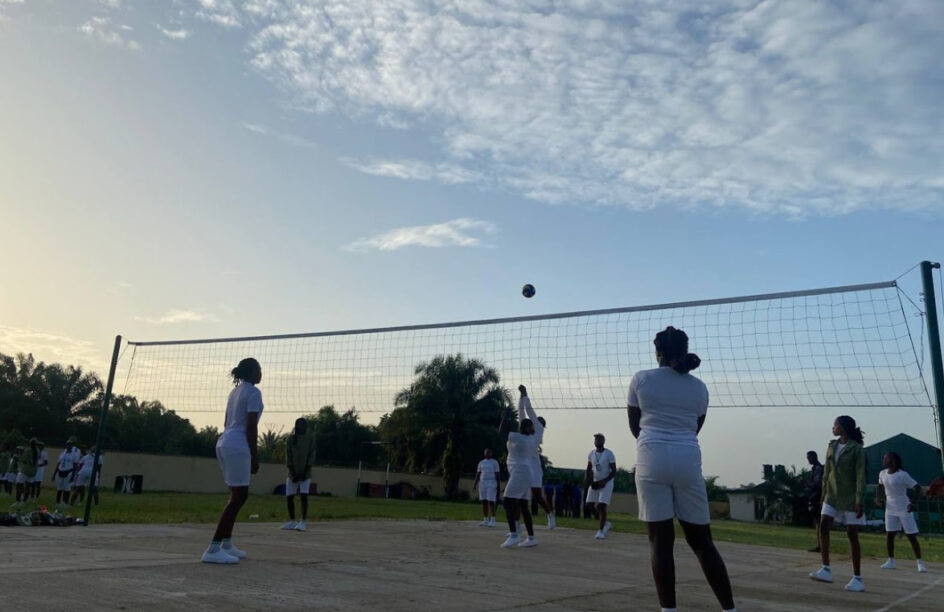May 2
Somewhere in Nigeria
There are only a few bathrooms in the hall of residence that I share with more than three hundred men at the camp of the National Youth Service Corps, the mandatory year of service for all university graduates in Nigeria. Many of us try to have a bath early—some as early as 3:30AM—before others wake up and join them in the jostle for the few bathrooms, so as usual I was woken by the sounds of footfalls and jangling buckets.
There was already a long queue to fetch water, and I filled my bucket twenty minutes later. The bathrooms were by now impossible, so instead of waiting, I joined a group of boys bathing in the open beside the hall. It is easily done because we are all men, and the sky is still dark so no one can see us. At 4:30AM the sound of bugle and whistles unsettled the quiet camp.
Two thousand corp members, all decked in white attire, arrived in the pavilion. After a half-hour for religious meditation, the camp director and other officials addressed the assembly. At 6:00AM, we all jumped up and stood at attention as the bugler played and the quarter guards hoisted the flags.

The director of Nigeria’s secret service in Bayelsa spoke of the security situation in the country and the south-south geopolitical zone. Later, outside, during physical training and drills, we sang the song we were taught as we jog and stretch.
Breakfast: white rice and stew. Afterward, we started the Skills Acquisition and Entrepreneurial Development [SAED] program. I chose Agro-Allied as my preferred course of the ten available training courses. They are long and boring, it was by now excruciatingly hot, and everyone struggled to stay awake.
The doctor who’d been supposed to deliver a afternoon health talk instead managed to cover quite a range of topics entirely unrelated to medicine, such as Japa, Nigeria’s emigration wave, the enormous number of black people in U.S. prisons, etc.
Another talk followed, concerning our postings after training; the assembled Corps members were by now nearly catatonic with boredom. But the mood changed swiftly after one short, bald official mounted the podium to talk about the process for collecting the $33,000 Naira stipend (about $70 USD) that will be paid to us monthly by the Federal Government. The lady sitting in front of me, who’d been sleeping, cheered the details of the allowance, colloquially called Allawee.
From a distance, we heard the sound of the bugle; finally, a two-hour break. We sang the NYSC anthem and filed out to eat lunch. The kitchen, which serves lunch from a single point, was immediately overwhelmed. My new friends Barakat, Derin and Aishat headed to Mammy market instead, where they sell all sorts of food, goods and services, at high prices. I ordered a bowl of eba and egusi and washed it down with a cold bottle of tigernut drink.

The bugle sounded again and I doubled out of the market along with the others. By 3:50, we were lined up in parade formation according to our platoons. The sun scorched us, but we kept at it. Most got the parade moves wrong, prompting insults from the platoon commandant; in my case, I was shouted at for my lack of military enthusiasm. Olodo, otondo, thunder fire you there, white fowl. He ended up pulling aside about thirty good paraders to be trained to represent our platoon at the passing out ceremony. I am not among them. I left to watch my Platoon’s female volleyball team as they practised ahead of their match tomorrow.

Two hours later, my gang of friends and I returned to the market for jollof rice and chicken, coleslaw and fried plantain. Then we ordered cold beer and drank under the shuffling colored lights. It is not an actual bar, but it works for us. Some corps members sang to Davido, but most anxiously awaited their orders or shouted requests at Bentu, the house owner, and the other staff, who alternate roles as chef, cook, cashier and waiter. Men and women squared up, some in romantic postures. Relationships that started here — and will most likely end here, I think.
Our nemesis the bugle sounded again, this time summoning us to the pavilion for social activities. “They only blow that thing to break your heart when you are happiest,” I heard someone say. I asked one of the buglers if he enjoys what he does here on camp. “Corper, I tire pass you. I no fit wait make the camp end,” he responded, and we laughed. At the pavilion, three platoons entertained us with an hour of dramatic performances and cultural dance.
We are expected to go to sleep by 10pm, lights out. Several of us are unable to sleep because one guy close to my bunk snores loudly. Forty minutes after lights out, we heard the sounds of whistles and the bugle again. The camp commandant had asked the military instructors to bring us out in the cold to sit on the wet grass. There are fake corps members in the hall, we’re told. Someone has stolen a phone, another defecated in a polythene bag and left it for the cleaners to clear, and many others just didn’t flush. Most of the guys are angry but some still answer him gingerly waa when he calls corper wee. He continued to admonish us, and threatened the culprits with punishment if they are ever caught. Two hours later, after a headcount, he let us go back into the hall.






